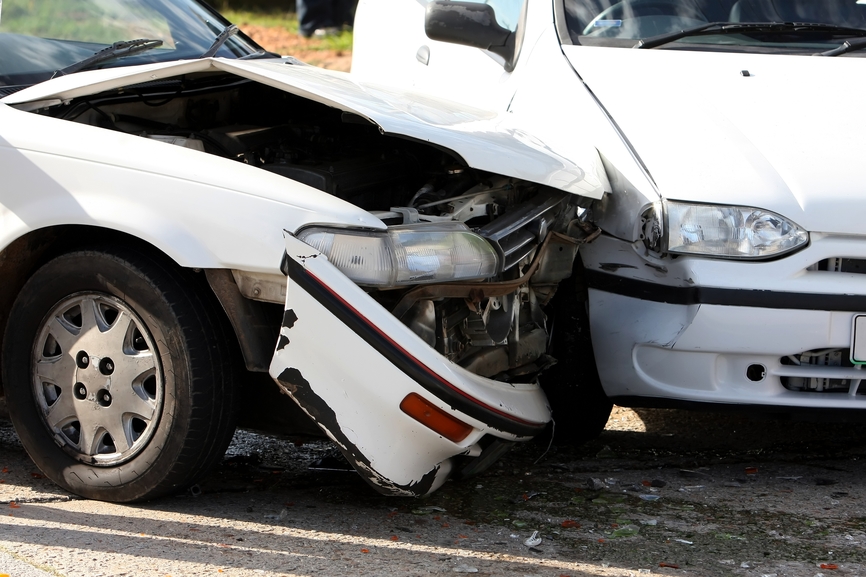7 Legal Concepts to Know for Personal Injury Cases
Written by Cooper & Friedman PLLC on November 8, 2018

As every personal injury case is unique, there are a broad range of legal concepts that can be applied given the circumstances. A personal injury case is one where an individual suffers as a result of the negligence or harmful intent of another. Damages awarded from personal injury cases can help one and or their loved ones recover.
Here are 7 legal concepts you should be aware of if you are considering pursuing a personal injury lawsuit.
Limitations Period
The limitations period is also known as the statute of limitations. This is the maximum amount of time one can wait before filing a personal injury lawsuit. The period of limitations varies from state to state. In Kentucky, most personal injury cases give a 1 year statute of limitations. However, similar cases in Indiana are given a 2 year deadline. This time constraint usually begins the day one is injured and can only be extended in specific situations. For example, if the injured party didn’t immediately know about the injury or the cause of the injury, their statute of limitations may be extended.
Negligence
Negligence is a way of establishing fault in a personal injury case. If one acted in a careless fashion they may be held liable for any harm done as a result. However, one must prove that the defendant owed the plaintiff a certain level of care. This level of care is called a “duty of care.” A doctor, property or vehicle owner, and a manufacturer for example, all have a reasonable “duty of care” to others. After it is illustrated that one did not perform their duty of care, it must also be proven that the defendant had knowledge of the potential for harm and did not act to prevent it in order to determine their fault. Additionally, causation must be clearly established as a result of the defendant’s action. If one is found negligent, damages are awarded to the plaintiff.
Damages
Damages are a form of compensation or reimbursement when one has experienced a loss as a result of either a physical injury or property damage. Compensation can be awarded to cover the cost of medical bills, lost wages, as well as pain and suffering. Punitive damages however, differ from these kinds of damages in that they are not a reimbursement but rather a form of punishment. Punitive damages are only awarded in the case of severe misconduct. These damages usually act as a preventative measure to discourage behavior such as fraud or assault from reoccurring.
Pain & Suffering
In the event of a wrongful death, survival claim or personal injury, a person’s pain and suffering can be difficult to calculate. Often times courts utilize a multiple that is essentially so many times the amount of any medical bills or wages to be compensated. One’s pain and suffering can include physical discomfort felt both now and in the future. Pain and suffering can also be defined as any emotional trauma as a result of the incident. This may include a post-traumatic stress disorder, depression, and general fear that may prevent them from returning to work or other normal life activities. Additionally, a lack of energy, appetite and or sleep can be a factor in determining one’s pain and suffering.
Bodily Injury
The concept of bodily injury is most often found in motor accidents. Bodily Injury is applied as an insurance company is compensating the victim through the at fault party’s insurance policy. Bodily injury is more specific than the concept of personal injury as it is limited to the body and thus limited in coverage. Damages for bodily injury usually cover any out of pocket expenses. These can include medical bills and lost wages as a result of impairment or disability. Damages can also make up for future medical expenses and any earning potential affected by the bodily injury. Pain and suffering is rarely awarded in cases of bodily injury.
Wrongful Death
Similar to a personal injury, a wrongful death is one caused by the negligence or intent of another. Wrongful death most often results from medical malpractice, motor accidents, crime, or
a hazardous product and or workplace. Just as with personal injury suits, a wrongful death suit must be filed within the state’s statute of limitations. Damages for these kinds of suits tend to include compensation for a major source of income lost. Additionally, compensation can be awarded for funeral and burial expenses, as well as the emotional distress of the family.
Survival Claim
A survival claim covers damages incurred from the moment of the personal injury until the wrongful death occurs. This encompasses the pain and suffering of the deceased, their wages lost during this time, as well as costs incurred. While similar to a wrongful death suit, a survival claim focuses on the experience of the deceased, not those they leave behind.
If you or someone you love needs legal help in Kentucky or Southern Indiana, Cooper and Friedman can help. The attorneys at Cooper & Friedman in Louisville, KY have over 50 years of combined experience getting compensation for personal injury cases. For more information, including a free case consultation with a personal injury attorney, call 502-459-7555.

